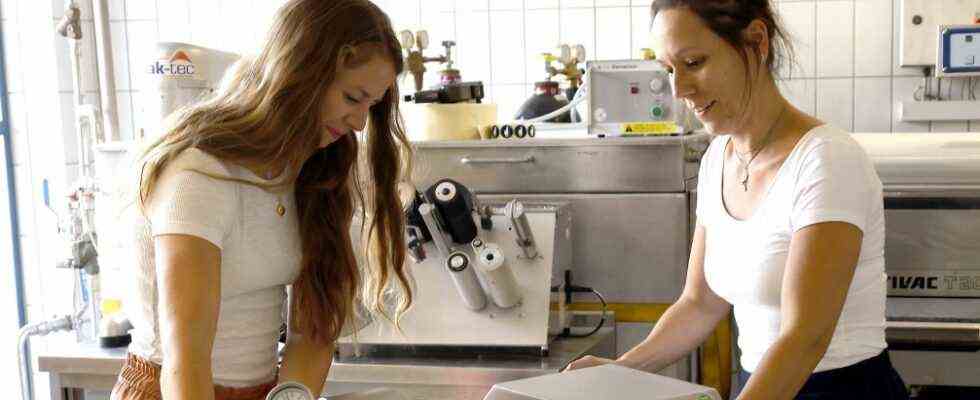No, it’s not just due to Corona and the lockdown. Even if a particularly large number of people, free from other distractions, have thought about their professional future and whether they should perhaps start their own business with this idea that they had in the back of their minds for a long time. “We’re already noticing,” says Marlies Resch from the Institute for Food Technology at Weihenstephan University, “that interest has risen sharply. But the topic of nutrition is much more of a concern to the general public than it used to be.”
In fact, a real wave of start-ups has now also sprung up in Munich. Young companies that have chosen a niche in food production have been founded in particularly large numbers in the past two or three years. The so-called “food start-ups” are trendy, and they are no longer limited to the twentieth craft beer brewery or the thirty-fifth local gin with botanicals from the neighborhood. From the vegan delivery service to the office to date chocolates, oat snack porridge and the first Munich cheese factory, many new mini-companies have recently started up in the city and the surrounding area.
Marlies Resch is not entirely innocent of this new start-up period. She is the technical director of the “Food Startup Incubator” at the University of Weihenstephan, a pilot project that the Chair of Food Technology, Thomas Lötzbeyer, initiated in 2019 “to promote entrepreneurship among students,” as Resch says. For this purpose, the university has made a workshop available in Freising, in which start-ups can use various production facilities for food production for a small fee. This makes the leap into independence a lot easier, as Eva Martell from Mamaeva confirms. Mamaeva is based in Garching, produces regional fruit wine spritzers and in many ways is an example of the new start-ups. They usually place great value on regional and organically produced ingredients, on sustainability and social responsibility. Mamaeva, for example, cooperates with the Penny Parade and with nature conservation associations.
Eva Martell studied in Weihenstephan and this is how she came up with her business idea, and she got started straight after graduation. What she particularly appreciated about the incubator was “that we got all the information we needed here”. The young founders are supported by regular coaching every two weeks. “We see ourselves as a catalyst that can accelerate the first steps,” says Resch. This also happens, for example, through public events in which large retail chains take part. This is also the case at the next online “Food Startup Campus” on September 30th (more information at foodstartupcampus.de).
In Weihenstephan, 24 start-ups alone are currently being looked after, and many others are long past the first steps. Relevant online platforms such as Startinfood.de, actually a Munich-based food start-up, professionally support founders in the food sector as an agency and crowdfunding source. So it’s no wonder that a particularly large number of new, small companies in this field are emerging in Munich. The SZ will present some of them in the coming weeks.

